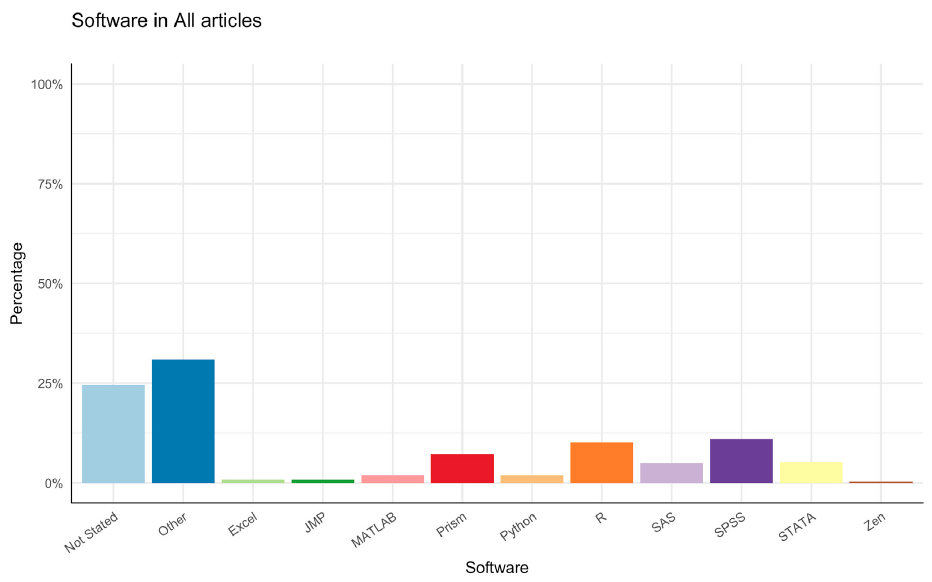OPEN SCIENCE
What’s next for Registered Reports? A comment by Chris Chambers in Nature on the advantages of the format and of moving the assessment of research methodology prior to a study being executed. As an unnamed reviewer is quoted: “If the authors can incorporate many of the suggestions from all of us reviewers, they will have a far better study than what they originally planned, which is really valuable and exciting.”
Preprint challenges. Mario Malički, Maria Janina Sarol, and Juan Pablo Alperin have begun to analyze technology challenges in extracting data from preprint servers. So far they have blogged about two of these, SHARE and OSF, and found challenges for both of them. They will cover bioRxiv in their next blog post.
Replication challenges. An editorial in Science by Editor-in-Chief Jeremy Berg around the replication of a study around the treatment of simian immunodeficiency virus in macaques. Three replication studies were unable to replicate the key finding. The journal is maintaining its prior Expression of Concern on the original study because “neither the Byrareddy authors, the authors of the attempted replication studies, nor the editors can account for the differences in results.”
Digital Science and Ripeta have released a brief report on reproducibility, falsifiability and the scientific method. The report highlights some of the challenges in documenting and sharing research methodologies and outputs. For example, only 8% of articles analyzed share code. The types of software shared according to the report are shown below.
Creative Common’s (CC) message to the community regarding Joi Ito. Ito was a CC board member from 2003-2014, CC’s board chair from 2006-2008 and from 2010-2012, CEO (part-time, unpaid) from 2008-2011, and on CC’s advisory council from 2014 until his resignation on 7 September 2019.
PUBLISHING
Open-access megajournals lose momentum as the publishing model matures. A news article in Science by Jeffrey Brainard that covers some of the drop in published output for megajournals, and challenges these journals face. Certainly, competition in this space is strong, and megajournals actually continue to be launched. I believe that there is an ongoing positive role of these very large journals, also as influencers for new editorial policies and publishing initiatives. As to the operational challenges of working at scale, I have covered performance improvements and other advances at PLOS ONE in a blog post earlier this year, and other megajournals have been working on their performance, too.
RESEARCH
U.S. EPA to eliminate all mammal testing by 2035. As reported in Science, what is promoted as a reduction of animal research is facing criticism because an implication of this move may be the weakening of environmental safety tests and of environmental standards.
PLOS
The Center for Open Science, Flu Lab, and the Public Library of Science Launch Initiative to Bridge Knowledge Gaps in Influenza Findings. I am excited about this partnership to publish negative/null and replication findings on influenza research in PLOS ONE, with commissioned content in PLOS Biology and PLOS Pathogens. PLOS has blogged about the trial here.
EVENTS
Being a Reviewer or Editor for Registered Reports. A webinar covering for example guidelines on how to write Registered Reports. Panelists are Chris Chambers, Anastasia Kiyonaga, and Jason Scimeca. 28 September 2019, 10:00 am US Eastern Time.
Meta-Research Day 2019. Plenary speakers are John Ioannidis, Ana Marušić, Sarah de Rijcke. 22 November 2019, Tilburg University, The Netherlands.
OTHER
Research Square Announces Rachel Burley as President. Burley moves from Springer Nature where she was VP and Publishing Director for the BMC Group and more recently VP Open Publishing Innovations. Congratulations!

An analysis of publications from the Ripeta database showing the types of software shared in research articles.
Citation (CC-BY): McIntosh Borrelli, Leslie; Vitale, Cynthia Hudson; Juehne, Anthony; Mothershead, Sasha; Sumner, Josh; Haynes, Leah; et al. (2019): Making Science Better: Reproducibility, Falsifiability and the Scientific Method. figshare. https://doi.org/10.6084/m9.figshare.9633158.v1